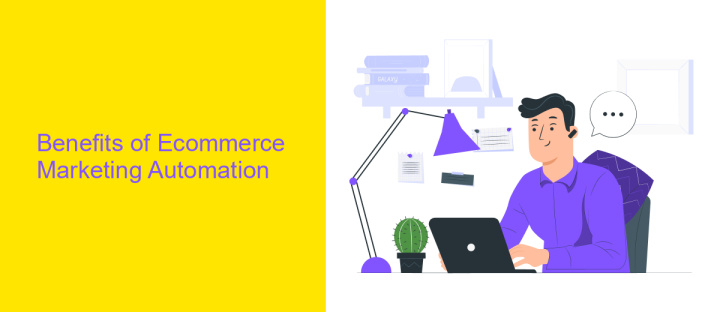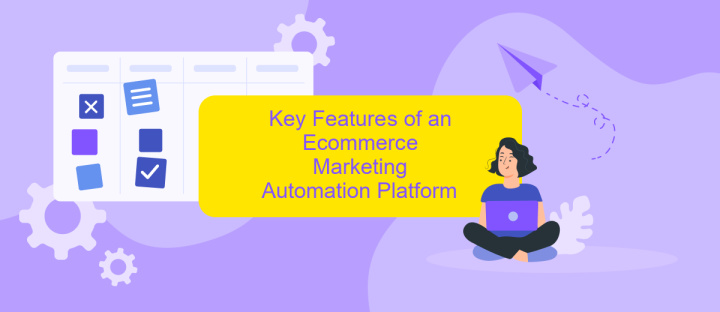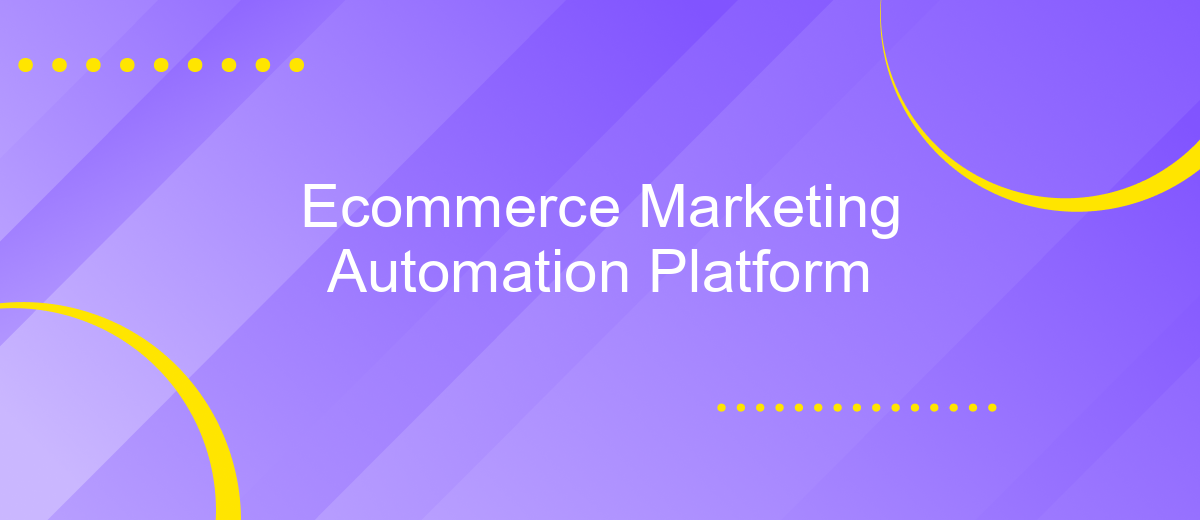Ecommerce Marketing Automation Platform
In today's fast-paced digital world, ecommerce businesses must stay ahead of the competition by leveraging advanced marketing tools. Ecommerce Marketing Automation Platforms empower businesses to streamline their marketing efforts, personalize customer interactions, and boost sales. By automating repetitive tasks and analyzing customer data, these platforms enable companies to focus on strategic growth and deliver a seamless shopping experience.
Overview
In the rapidly evolving world of ecommerce, marketing automation platforms have become indispensable tools for businesses aiming to streamline their marketing efforts and enhance customer engagement. These platforms offer a suite of features designed to automate repetitive tasks, segment audiences, and personalize communications, ultimately driving higher conversion rates and boosting sales.
- Automated email campaigns
- Customer segmentation
- Personalized product recommendations
- Multi-channel marketing
- Analytics and reporting
By leveraging an ecommerce marketing automation platform, businesses can efficiently manage their marketing strategies, freeing up valuable time and resources to focus on growth and innovation. These platforms not only improve operational efficiency but also provide deep insights into customer behavior, enabling more targeted and effective marketing campaigns. As a result, companies can build stronger relationships with their customers and achieve sustainable business success.
Benefits of Ecommerce Marketing Automation

Ecommerce marketing automation offers numerous benefits, including increased efficiency and personalized customer experiences. By automating repetitive tasks such as email marketing, social media posting, and ad campaigns, businesses can save valuable time and resources. This allows marketing teams to focus on strategy and creativity, leading to more effective campaigns. Additionally, automation platforms enable personalized communication with customers, enhancing engagement and loyalty through tailored content and targeted offers.
Another significant advantage is the ability to integrate various tools and services seamlessly. For instance, platforms like ApiX-Drive facilitate easy integration between different marketing tools, streamlining data flow and ensuring consistent messaging across channels. This integration capability not only simplifies the marketing process but also provides valuable insights through comprehensive analytics. As a result, businesses can make data-driven decisions, optimize their marketing strategies, and ultimately achieve better ROI. In summary, ecommerce marketing automation is a powerful tool that enhances efficiency, personalization, and integration, driving overall business growth.
Key Features of an Ecommerce Marketing Automation Platform

An Ecommerce Marketing Automation Platform streamlines various marketing processes, enabling businesses to efficiently manage and optimize their marketing strategies. By automating repetitive tasks, companies can focus on crafting personalized customer experiences and driving higher engagement rates.
- Email Campaign Automation: Automatically send personalized emails based on customer behavior and preferences.
- Customer Segmentation: Group customers into segments for targeted marketing efforts.
- Behavioral Tracking: Monitor and analyze customer interactions to tailor marketing strategies.
- Multi-Channel Marketing: Coordinate campaigns across various channels like email, social media, and SMS.
- Analytics and Reporting: Generate detailed reports to measure campaign effectiveness and ROI.
Implementing an Ecommerce Marketing Automation Platform can significantly enhance a business's ability to connect with customers on a personal level. By leveraging key features such as email campaign automation and behavioral tracking, companies can create more impactful marketing strategies that drive growth and customer loyalty.
Implementation and Best Practices

Implementing an Ecommerce Marketing Automation Platform requires careful planning and execution. Begin by identifying your business goals and the specific needs of your target audience. This will help you select the right tools and features that align with your marketing strategy.
Once you have chosen a platform, the next step involves integrating it with your existing systems. Ensure compatibility with your e-commerce platform, CRM, and other marketing tools. Proper integration will streamline data flow and enhance the efficiency of your marketing efforts.
- Define clear objectives and KPIs for your automation campaigns.
- Segment your audience to deliver personalized content.
- Regularly test and optimize your automation workflows.
- Monitor performance metrics and adjust strategies as needed.
- Ensure compliance with data privacy regulations.
Continuous monitoring and optimization are crucial for the success of your automation platform. Regularly review your campaigns and workflows to identify areas for improvement. By adhering to best practices, you can maximize the ROI of your marketing automation efforts and drive sustainable growth for your e-commerce business.
Conclusion
In conclusion, adopting an Ecommerce Marketing Automation Platform can significantly enhance the efficiency and effectiveness of your marketing strategies. By automating repetitive tasks, personalizing customer interactions, and leveraging data-driven insights, businesses can achieve higher conversion rates and improved customer retention. The integration of various marketing tools into a single platform streamlines operations, making it easier to manage campaigns and analyze performance metrics.
Moreover, utilizing services like ApiX-Drive can simplify the integration process, allowing seamless connectivity between different applications and your marketing automation platform. This ensures that data flows smoothly across all systems, providing a comprehensive view of customer interactions and enabling more informed decision-making. Ultimately, investing in a robust marketing automation platform, complemented by efficient integration tools, can propel your ecommerce business to new heights, driving growth and maximizing ROI.
FAQ
What is Ecommerce Marketing Automation?
How can Ecommerce Marketing Automation benefit my online store?
What types of tasks can be automated in Ecommerce Marketing?
How do I integrate my Ecommerce platform with a Marketing Automation tool?
Is it difficult to set up Ecommerce Marketing Automation?
Routine tasks take a lot of time from employees? Do they burn out, do not have enough working day for the main duties and important things? Do you understand that the only way out of this situation in modern realities is automation? Try Apix-Drive for free and make sure that the online connector in 5 minutes of setting up integration will remove a significant part of the routine from your life and free up time for you and your employees.

